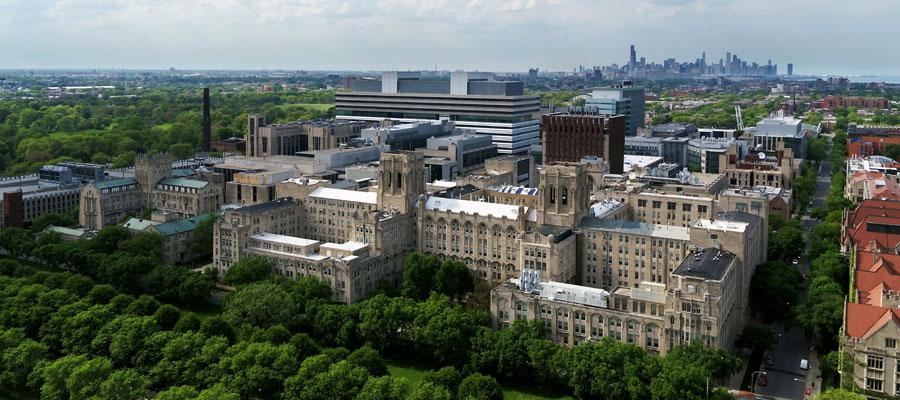Melody Swartz, William B. Ogden Professor of Molecular Engineering at the Pritzker School of Molecular Engineering, and Holly J. Humphrey, Ralph W. Gerard Professor of Medicine and current president of the Josiah Macy Jr. Foundation, were elected to the National Academy of Medicine (NAM) on October 19. They will join 98 other new members as members of the society, which is widely recognized as a leading advisor on health and medicine, the reports of which can affect worldwide medical thinking.
Swartz was elected “for pioneering contributions to the field of lymphatic physiology and immunobiology, and the elucidation of how lymphatics regulate immunity, tolerance, and tumor progression.” She also serves as secondary faculty at the Ben May Department for Cancer Research, also at the University of Chicago. She was named a MacArthur fellow in 2012 and was elected to the American Academy of Arts and Sciences in 2018.
Humphrey was elected “for transforming medical education learning environments by creating cultures of equity, diversity, and belonging that prepare future health professionals to care for diverse populations and address social determinants of health.” After graduating from Pritzker with honors in 1983, she pursued an internal medicine residency followed by a pulmonary and critical care fellowship, spending a further 14 years as program director for internal medicine residency. She then worked as Dean for Medical Education at Pritzker, a position she held for 15 years. In 2018, she became president of the Josiah Macy Jr. Foundation, the only national philanthropy dedicated specifically to improving the education of health professionals.
In an interview with The Maroon, Humphrey said that as a student at the University, she developed the skills to question the world and learned that the best solutions often lie at the intersections of different disciplines. When asked about the opportunities her membership on the NAM held for the scope of her work, she said that the “opportunity to bring together multiple disciplines to address problems in our society today” was what energized her most.
Humphrey criticized the racial gap in healthcare and said that she has “already started working on with the National Academy of Medicine the intersection of COVID-19 with racial justice” and that she hopes “really once and for all we'll have some durable solutions so that we can make real progress as a society.” She also said that the NAM is poised to advise the next presidential administration on climate change, an issue the NAM is planning to focus on the near future.
Humphrey also stressed the importance of a “scholarly” approach, both in medicine and as a mindset for change. “It's in the process of developing good questions that real discovery is made,” Humphrey said. A scholarly approach “introduces discipline and thinking and I think leads to more powerful opportunities related to discovery and the discovery of new knowledge which this university and many of our nation's great universities have been about from their very beginnings.”
To Humphrey, the best doctors combine a scholarly outlook with compassion and care. “There's so much opportunity for us as a society to try to address those issues so that everyone has the possibility for access to health and health care and education and you know some real basics like food and housing and the basics that so many of us in society take for granted and don't realize that just one zip code away someone else doesn't even have access to basics.” She said that physicians should extend their compassion beyond their patients to society as well. “I think that compassion goes beyond the eyes of the patient in front of you and it stands much more broadly to a society that has not always done a very good job of addressing those broader issues that have such a deep impact on the people who we care for.”










